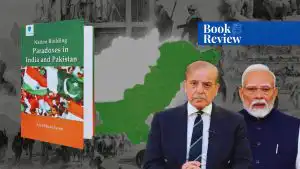Author
Joseph Eugene Stiglitz was born in Gary, Indiana, on February 9, 1943. He is an American economist well known for his work on information asymmetry and his critique of globalization. From 1997 to 2000, he was the World Bank’s chief economist and senior vice president. During that time, Joseph Eugene Stiglitz became a vocal opponent of IMF and World Bank policy, arguing for reforms to improve global economic equity and social justice. He is the laureate of the Nobel Memorial Prize in Economic Sciences. Stiglitz’s research has focused on various themes, including income inequality, financial markets, globalization, and information economics.
About the Book
“Globalization and Its Discontents” was published in 2002 by Joseph Eugene Stiglitz, and since then, there have been subsequent editions that include updates and revisions to reflect changes in the global economic landscape. This book is comprised of nine chapters. It is divided into three distinct parts. The first three chapters introduce the development process of international financial institutions such as the World Bank, the International Monetary Fund, and the World Trade Organization.
Part II (Chapters 4, 5, and 6) provides detailed case studies of the Asian and Russian economic crises that rocked global markets in the 1990s. The final section covers the last three chapters of the book and contains recommendations for reforming the system to prevent or at least minimize the recurrence of such economic crises in the future.
Review
The book’s title hints that it’s about globalization, which Stiglitz explains as breaking down barriers to trade and making countries more economically connected. Joseph Eugene Stiglitz wrote the book “Globalization and its Discontents” while he was working at the World Bank. There he witnessed the devastating effects of globalization on developing countries, especially on the poor people living in those countries.
He has been interested in economic development but with firsthand experience of working in an economic institution, his views changed for both globalization and development. He says that some good things have developed with globalization, like the landmine treaty, forgiving the debts of some of the poorest countries, and foreign aid. But globalization has not succeeded in doing what we wanted it to do, which was to reduce poverty nor it has succeeded in creating stable societies.
In addition, the author criticizes international economic institutions such as the International Monetary Fund and the World Bank. These institutions were established to promote global economic stability and development. Stiglitz provides a critical analysis of the IMF’s policies, particularly in response to financial crises in developing countries.
This book criticizes the IMF’s policy failures in three main areas:
- Crisis management (such as the East Asian crisis)
- Development of poorer countries
- The transition from a planned to a market economy (e.g., with Russia)
Joseph Eugene Stiglitz believes that IMF programs undermine the stability of developed countries. The most important thing about this book is that the author gives living examples that were affected by globalization; he points to Russia as a huge failure of globalization. For example, in the 1990s, China’s GDP was 60% of Russia’s but by the end of the decade, the numbers had been reversed.
In 1991, the Soviet Union broke up and capitalism was restored, There’s been large-scale privatization, trade liberalization, and deregulation, and at that time, the economy of Russia was destroyed. It was a huge dip in the economy; it completely devastated the country to the point where it went for what was called “shock therapy.” As per an IMF program, Russian President Boris Yeltsin was told to privatize all of the Russian industries in 90 days. So keeping this policy in view, he privatized everything, and the results were horrific. Since then, the diverse economy now depends on one commodity: oil.
Joseph Eugene Stiglitz also mentions the East Asian currency crisis, which changed the debate on globalization. The final part of the book proposes a comprehensive set of reforms aimed at addressing the shortcomings of globalization and promoting equal and more sustainable economic development. These reforms include restricting international financial institutions to prioritize the interests of developing countries, promoting fair trade practices and environmental sustainability in the global trading system, addressing economic inequality through progressive taxation and social investment, promoting democratic governance, and building a resilient and inclusive economy through investment in infrastructure, innovation, and social capital.
Critical Analysis
The IMF policies, which frequently support austerity measures and structural adjustment programs, exacerbate economic imbalances between rich and poor countries by prioritizing the interests of wealthy nations and financial markets. It is hypocritical for global economic institutions to impose restrictions on developing countries, such as requiring the removal of trade barriers and government subsidies while allowing developed countries to maintain these subsidies and barriers.
This double standard only increases poverty in developing countries while enriching banks and companies in developed countries. The policies of this institution are influenced by the great powers. In the 1980s, the so-called Washington Consensus was adopted, an ideology based on absolute free market policies. A strong commitment to the Washington Consensus ideology transformed the way the IMF operates. The IMF applies strict conditions to any country that applies for a loan.
This unifying fee-market ideology has led to frequent IMF failures and increased poverty in indebted countries. The double standards of economic institutions can erode trust in these institutions, exacerbate global inequalities, and undermine the principles of fairness and impartiality upon which they are ostensibly founded.
Conclusion
In “Globalization and Its Discontents,” Joseph Eugene Stiglitz provides a compelling critique of neoliberal policies and their negative impact on developing countries. While highlighting the internal flaws of international economic institutions. However, the book’s narrow focus on the negative effects of globalization and its somewhat vague policy prescriptions may limit its overall effectiveness. Apart from this, it remains a thought-provoking and influential work that stimulates critical discussion of global economic governance
The book, however, is an interesting read because it is mostly based on the author’s own experience. It also highlights the imperial nature of IMF relationships with the rest of the world, especially with the developing world. If you want to study and learn about globalization from within from someone who is a Nobel laureate in economics and who has worked for these institutions, this is a really good book to read.
If you want to submit your articles and/or research papers, please check the Submissions page.
The views and opinions expressed in this article/paper are the author’s own and do not necessarily reflect the editorial position of Paradigm Shift.
Malyka Safdar did her bachelor's in political science from International Islamic University and graduated in 2023.






